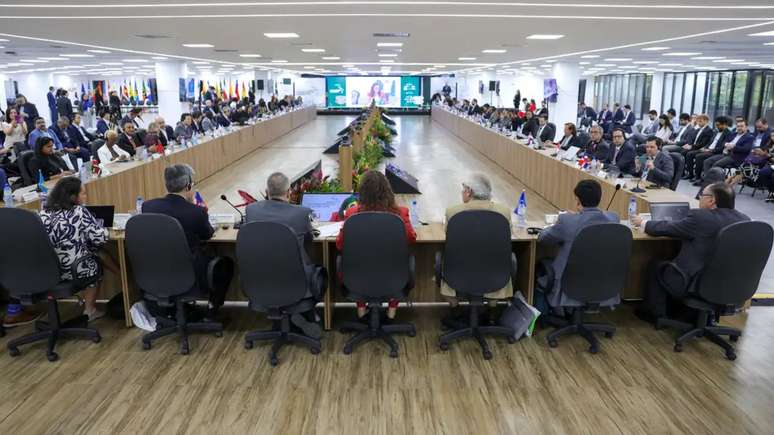Security mechanisms in the digital environment must be as fast and creative as cybercriminals, in order to minimize risks to the provision of services across large networks by governments. Faced with this challenge, the authorities of 25 Latin American and Caribbean countries and international organizations gathered in Brasilia, participating in the 8th Ministerial Meeting of the Inter-American Digital Government Network (Rede Gealc).
Challenges in digital security
The challenges in the field of digital security are numerous and complex, ranging from the constant evolution of cyber threats to the need for greater political integration between countries. According to the Organization of American States (OAS), issues such as digital signatures, systems integration and digital security are critical to the advancement of digital governments.
One of the main obstacles mentioned by Luis Portoconsultant to the OAS, is the slowness of the public sector compared to the private sector in adopting new technologies and regulations. The public sector approach, limited to what is permitted by law, contrasts with the dynamism of the private sector, creating an urgent need for regulatory frameworks that enable rapid progress in digital security.
Data governance and artificial intelligence can help
A crucial proposal discussed at the meeting is the development of an Inter-American Framework for Data Governance and Artificial Intelligence. This document, prepared by the OAS, aims to standardize processes and strengthen trust between nations by implementing practices that protect sensitive data.
Data governance aims not only at protection but also at regional integration. By establishing common standards, countries can collaborate more efficiently, ensuring that digital security policies offer greater rights and protection to their populations.
Digital citizenship practices in Latin America
Paula Acosta Marquezof the Inter-American Development Bank (IDB), highlights digital citizenship as an essential policy for the safe growth of digital technologies in the region. Expanding these initiatives enables collaboration across national borders, promoting economies and partnerships that benefit both governments and citizens.
Digital transformation and inclusion in Brazil
Esther DweckMinister of Management and Innovation in Public Services in Brazil, highlights digital transformation as a tool to fight inequalities and improve public services.
“In the Brazilian government, we understand that discussing the digital agenda means discussing the future and development. It means addressing systemic inequality, including technological inequality between countries and people. Therefore, we have used digital resources to provide better, more effective public services and adequate to the needs of our citizens”said the minister.
Now let’s talk about the historical event: the Ciudadano Digital Mercosur, which is a reality. 👏🏻🎉 born from the times of redGealc pic.twitter.com/xwrEkmlt3A
— RedGEALC.org (@redgealc) November 26, 2024
Source: Terra
Rose James is a Gossipify movie and series reviewer known for her in-depth analysis and unique perspective on the latest releases. With a background in film studies, she provides engaging and informative reviews, and keeps readers up to date with industry trends and emerging talents.






